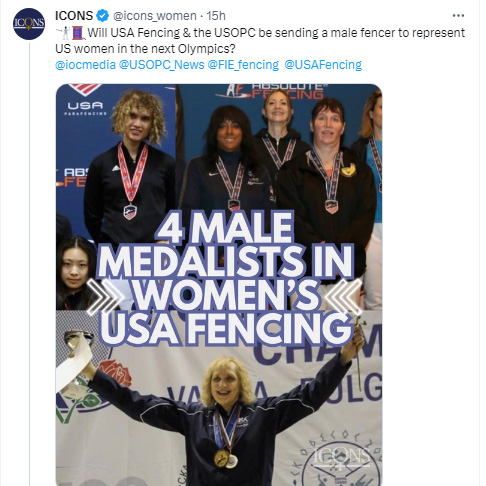The inclusion of transgender athletes in women’s sports has sparked a heated debate within the fencing community. While some embrace inclusivity, others argue it puts natural-born women at a disadvantage. Here’s an overview of the controversy and the concerns raised.
The crux of the issue lies in the achievements of transgender athlete Eden Philpot, who transitioned from male to female.
Since the 2022-2023 season, Philpot has won an impressive tally of medals, including four golds, two silvers, and a fifth and eighth-place finish. What makes her success stand out is her dual mastery in two disciplines, foil and saber, a rare feat in fencing. Critics argue that such achievements highlight a potential imbalance in the sport.
Concerns have been raised by an anonymous fencing competitor who believes that the inclusion of transgender athletes is “unfair, ill-thought, and short-sighted.”
She told dailymail:
‘No other competitor appears on the podium of both events aside from Eden. I don’t think I’ve seen it in my lifetime of fencing,’ she said.
‘What I’m seeing happening right now is a total disregard for the integrity of women’s sports at all ages from girls to the seniors to the veteran women,’ she said.
She said she is fed up of ‘male-bodied people’ in tournaments due to the ‘advantage male puberty brings’.
‘I’m seeing that people are afraid to say anything about it, because there’s an executive body that has been extremely vocal about wanting to allow transgender women in the women’s division.’
She highlights the physical advantages that male-bodied individuals may retain even after transitioning and calls for fair competition that allows natural-born women to feel they have a chance to win.
USA Fencing, the sport’s official organization, has declared its support for transgender and non-binary athletes as a “moral and ethical imperative.”
Their policy outlines criteria for transgender athletes to compete in women’s events after a year of testosterone suppression treatment. However, critics argue that the policy lacks rigorous hormone testing and external verification.

